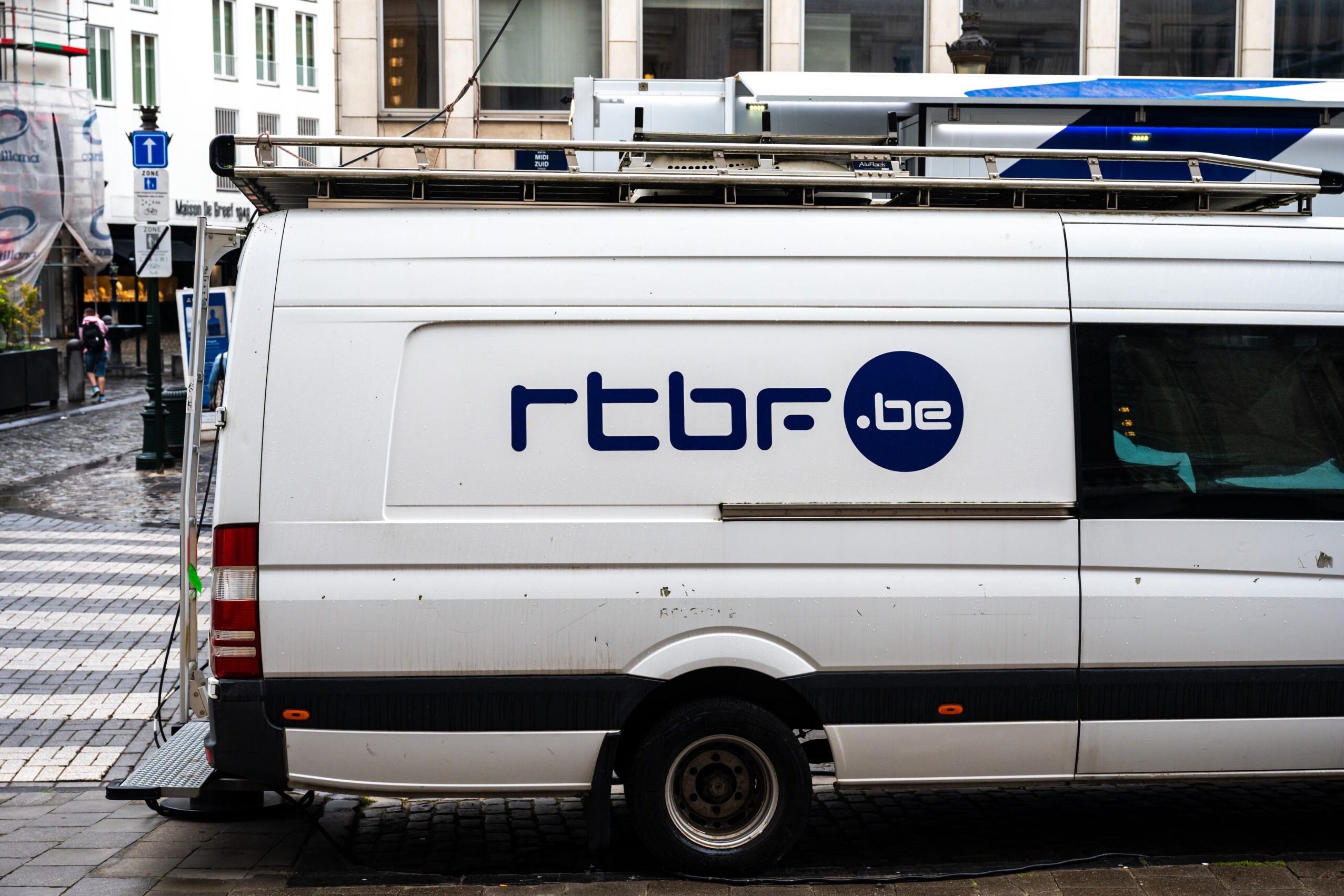INTERVIEW
RTBF is taking another step into the world of video games
15th November 2024
Belgian public broadcaster RTBF has already established itself in the world of video games in Belgium via RTBF IXPÉ, and now they are embarking on a co-production with Arte.

As part of their core mandate, public service media (PSM) must serve diverse national audiences. Yet there is a cross-generational part of society that is often underserved and underrepresented by PSM: the gaming community.
To address this deficit, Belgium’s French-speaking public broadcaster RTBF launched RTBF IXPÉ in 2021 – a department dedicated to creating content that both fulfilled core public service values and appealed to gamers. Now, building on this success, they are collaborating with the French and German public broadcaster Arte on the co-production of a video game.
In October, PMA journalist Charlotte Pion spoke with Gregory Carette, an expert in video games and e-sports for RTBF, to discuss this first experience in video games co-production.
Charlotte Pion: What is 30 Birds? And what role did RTBF play in this co-production?
Gregory Carette: 30 Birds is an adventure and platform game inspired by Persian art and the Persian world. It was developed by RamRam Games, a Brussels-based studio made up of Laurent Toulouse and Coline Sauvand. It’s a cross-generational game, with puzzles and adventures that everyone can get hooked on as long as they’re a little bit keen to investigate.
It’s a game that conveys a message of cultural openness but also an ecological one, of respect for nature. There’s clearly an important message behind it.
30 Birds is a game that I discovered a few years ago at a Big Brotaru, a big showcase and pitch event for video game designers. I fell in love with the game the second I saw it and it has stayed with me.
Read more: PSM Unpacked | Covering elections for young audience
For the last 4-5 years I’ve had this idea that the RTBF could perhaps get into video game development or video game publishing. Not us, obviously, but rather co-produce video games like we do with films and series.
And so, as part of everything I’ve tried to put in place with video games and RTBF IXPÉ, at one point I asked to talk with the people I knew at Arte, telling them that we wanted to get into video game co-production.
You have to realise that Arte has 10 years’ experience of co-producing video games and digital creations.
I thought it would be interesting to take the pulse of the players in this sector. In Belgium, we have the WALGA (Wallonia Games Association), Games.Brussels and the FLEGA (Flemish Game Association), which are three different federations that defend the interests of video game developers. However, as Arte is a neutral ground, we started discussions with them and the question of co-producing together came up. The teams at Arte were really keen for us to work together.
Listen toour podcast
Uncovering and exploring the biggest
issues facing public media
They presented the two projects they were working on at the time, one of which turned out to be 30 Birds.
There was also talk of what RTBF’s investment would bring to the co-production. The fact is that we were bringing in something quite interesting for the studio, namely a better polish for the game, but above all a portal onto Nintendo Switch. Prior to our arrival on this project, 30 Birds would only have been released on the PC gaming platform Steam, limiting access to the game.
What we found really interesting about this project is that the RTBF’s involvement not only means better graphics for the game, but also the fact that the game is being released on another platform, so we’re providing an additional showcase and therefore potentially a bigger audience.
We’re also adding editorial value by showcasing the game on platforms like Twitch, YouTube, and across all our social media. So, we can really extend the game in terms of media, make it more visible and bring it to a more general audience.
That’s how we reached an agreement with Arte, how we finally met RamRam Games, and how we came to co-produce 30 Birds with Arte, RamRam studios and Business Goose, which is a Flemish studio.
In the future, the ideal thing would be to get involved earlier in these projects, so that we can bring something extra to the game. We can give our opinion to the developer, but in the end, I think that the values and themes addressed in these games will be the criteria for choosing which project to move forward with.
It would be really interesting to develop a digital creation centre within RTBF, especially as it would introduce a diversification of revenues, but for the moment we’re only at the beginning with this first experiment with 30 Birds.
CP: How does a game like 30 Birds or an offer like RTBF IXPÉ fit in with RTBF’s mission?
GC: It has both a B2B and a B2C side. For me, the B2B mission is to inform, frame and entertain about video games. That’s what we’re also doing: highlighting Belgian and French-speaking talent.
Above all, we showcase this talent by getting them to work here at RTBF. We have a streaming studio on Twitch that’s On Air all week, so that means we’re putting five or six content creators to work once a day every week.
Beyond that, there’s a whole ecosystem to build, and here I’m not talking about video game development, because we weren’t there at the start, but tournament organisers, production companies and so on. The games sector is facing a crisis at the moment, and not only is it very small, but there are also very few structures. The challenge is to find collaborators and production studios that specialise in video games.
So, does all this fit in with RTBF’s mission? Yes, completely. We strive to respect RTBF’s values and ethics by promoting inclusiveness, which is important to us in terms of gender, social class, education and entertainment.
CP: How did RTBF come to include video games in its programming?
GC: Since the creation of the Tarmac channel, we’ve really brought in this culture of video games and esports, to finally give them a place that we didn’t have before in our offer.
At the very beginning we created a Twitch channel, 7-8 years ago, and we started organising video game and esports tournaments in cinemas. Alongside that, we really tried to integrate esport into other channels, like the TV broadcast of virtual F1 on Tipik on RTBF Auvio.
But we very quickly realised that the two worlds at Tarmac didn’t meet. There was a video games community, a geek community and a hip-hop community that didn’t really meet. So, after 3-years, we created a ‘video games’ label at RTBF, called RTBF IXPÉ.
Today, RTBF IXPÉ is a proper digital media, active on the RTBF Auvio platform and on the news website too. We’re one of the few, if not the only video games department within a public media organisation. In Portugal they have RTP Arena, which is a media that focuses mainly on esport.
We’ve tried to integrate esport into RTBF IXPÉ too. At the start we were much more generalist, but there was a real brake on esport, so we refocused on the video games offering.
CP: What is RTBF’s approach to video games and streaming?
GC: RTBF IXPÉ has really developed an expertise in video games. Today, journalists ask us for advice and consult us. We sometimes work with them. It’s hard to sell video games and sports stories on the news, but with our digital news, it’s much more fluid.
But it’s also a way of creating a link with a part of society with which RTBF had little to no contact before.
CP: Could a service such as RTBF IXPÉ be a tool for creating a link with younger audiences for PSM in the future?
GC: It’s a complex question because I think it could bring in another audience — I don’t think… I’m convinced — an audience that RTBF has never reached or tried to reach, or at least not in the right way. But I wouldn’t necessarily include young people in that audience. The audience we’re trying to reach today is the audience that watches ‘Joueur du Grenier’ and goes to the ‘Made in Asia’ convention. Here we’re more in the Gamer community. This audience can be as young as 13 or as old as 55, but it’s an audience, or rather a community, that has never been reached or even approached by RTBF.
When we started to create this community, particularly when we launched video game tournaments in cinemas, the people who came to see us at these tournaments hardly knew anything about RTBF. They were the forgotten public service.
Whereas today, the public service has a duty to make content for everyone. It’s estimated that one-in-two people (if you round it up) plays video games, either closely or remotely. This means that if we don’t talk about video games, it’s as if we’re leaving out a whole section of society that is represented in all social classes, all genders, all towns and all strata of the population. So, by including it in our offer, we’re including a whole part of society that hasn’t been taken into account… until now.
Related Posts
3rd October 2024
PSM Unpacked | Covering elections for young audience
Our global membership recently joined…
3rd July 2024
Switching off: Young audiences, streaming and public media
The outlook for public media is not…




